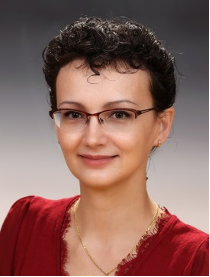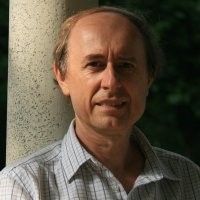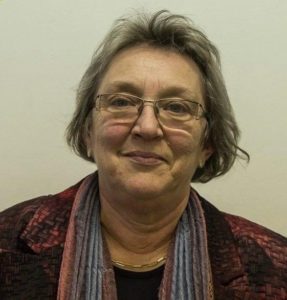
Project Leader
Associate professor at the Faculty of Education, J. Selye University in Komárno
Melinda Nagy received her degree in Pedagogy of the general-educational subjects – Biology, Arts and Crafts in 1998 from University of Prešov, Faculty of Humanities and Natural Sciences (in Prešov, Slovakia), and PhD in Anthropology in 2003 from the University of Prešov, Faculty of Humanities and Natural Sciences (in Prešov, Slovakia). She obtained Habilitation in Anthropology in 2018 from Eszterházy Károly University (in Eger, Hungary). Her field of research is among others subject biology and pedagogy (e.g. anthropology, genetic research of the origin of the Roma population living in Europe, health education, ethnicity and tolerance). She has authored of 3 scientific monographs, 13 university textbooks and teaching notes, 15 scientific papers published abroad in journals registered in the Current Contents Connect database, 18 book-like editorial works and 191 other miscellaneous peer-reviewed publications. She has totally 367 independent citations of which 216 appeared in a foreign publication and are listed in an international database (WoS or Scopus). She is the pro-rector for accreditation and quality assurance at J. Selye University.
The ‘School-community Partnership for Reversing Inequality and Exclusion: Transformative Practices of Segregated Schools’ – ‘Inclusion4Schools’ projects address an important societal issue; the topic of the project is closely related to my previous research topics and scientific interests.

WP Manager (WP1)
Péter Tóth is a Professor at the Department of Pedagogy, Faculty of Education JSU in Komárno (from 2017). Péter Tóth holds a Ph.D. in educational research (2005) from the Eötvös Loránd University, Faculty of Education and Psychology (in Budapest, Hungary). 13 Inclusion4Schools template WP18-20 v20180201
He obtained his Habilitation in educational sciences in 2012 from Eötvös Loránd University, Faculty of Education and Psychology (in Budapest, Hungary), after inaugurated for professor in educational sciences (2016) at Obuda University (in Budapest, Hungary), where he was employed until 2017. His research area is: Pedagogy for minorities; Learning problems; Early school leaving, school dropout; Improvement of problem-solving thinking; Measurement of visual abilities. He has authored of 237 scientific publications totally of which 39 are scientific monographs and professional books and 5 monographs/books in which chapters/sections were contributed. He has totally 580 independent citations.

Team member
Terézia Strédl a member of the Department of Pedagogy, Faculty of Education JSU. The main field of research of this department is subject pedagogy, methodology and university education problems. She is very active in projects dealing with education issues. Further investigations of Dr. Strédl are focused on communication and learning situations in the context of Hungarian language schools in Slovakia, tolerance and special needs education. Terézia Strédl received her degree in Special education in 1975 from Faculty of Education, Comenius University (in Bratislava, Slovakia), and in School psychology in 1990 from Faculty of Philosophy, Comenius University (in Bratislava, Slovakia). She has PhD in Special education (2010) from the Faculty of Education, Comenius University (in Bratislava, Slovakia). She has authored of 5 scientific monographs, 2 university textbooks, 2 university teaching notes, 9 book-like editorial works and 31 other miscellaneous peer-reviewed publications. She has totally 30 independent citations of which 2 appeared in a foreign publication and are listed in an international database (WoS or Scopus).
The approach to inclusion addresses me both as a civilian and as a professional. Inclusion provides an opportunity to neutralize social exclusion and to ensure equal opportunities in education. As we prepare future teachers, we focus on the inclusive index, and the project provides an opportunity to expand the practical experience, thus helping the profession and stakeholders.